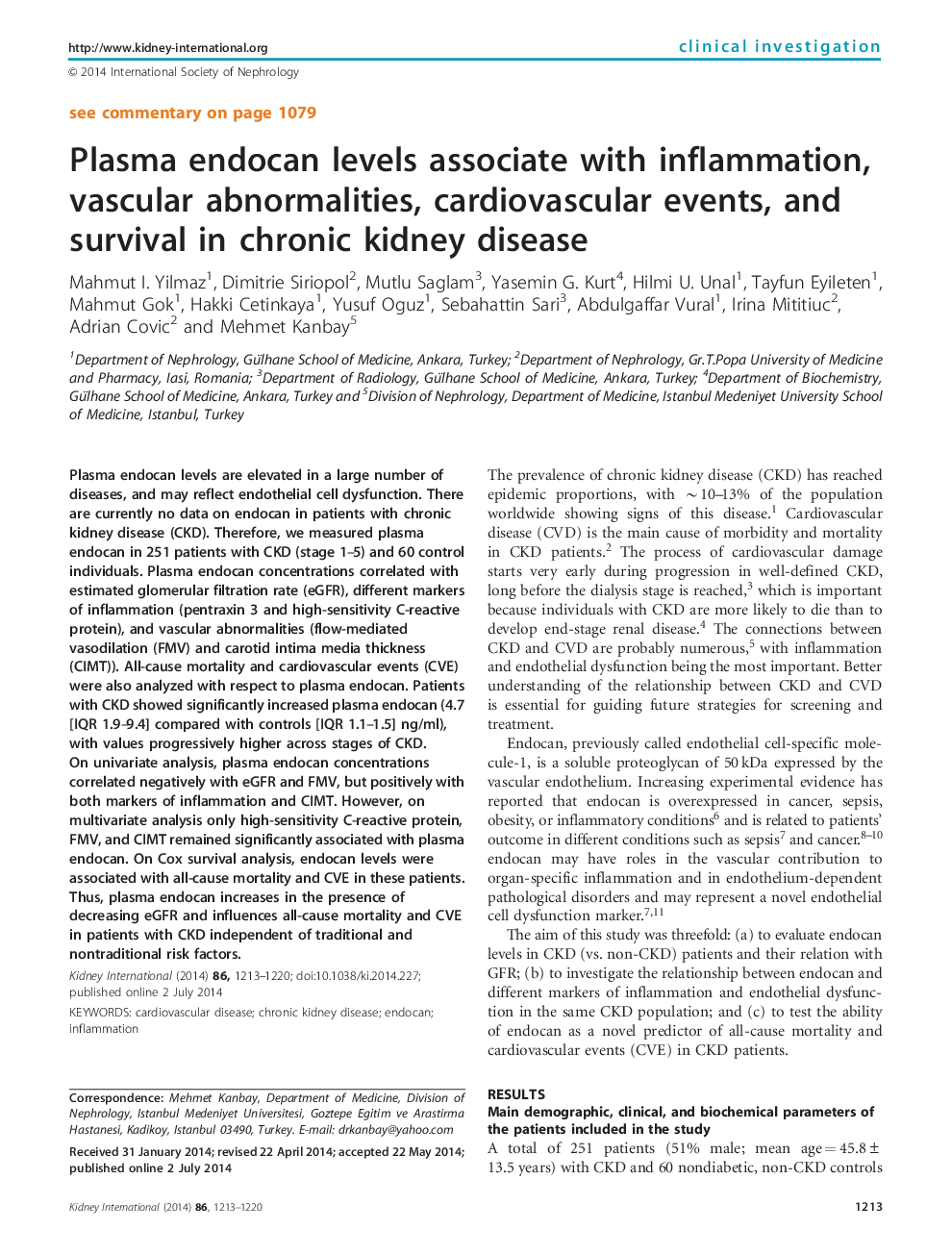| Article ID | Journal | Published Year | Pages | File Type |
|---|---|---|---|---|
| 6163513 | Kidney International | 2014 | 8 Pages |
Abstract
Plasma endocan levels are elevated in a large number of diseases, and may reflect endothelial cell dysfunction. There are currently no data on endocan in patients with chronic kidney disease (CKD). Therefore, we measured plasma endocan in 251 patients with CKD (stage 1-5) and 60 control individuals. Plasma endocan concentrations correlated with estimated glomerular filtration rate (eGFR), different markers of inflammation (pentraxin 3 and high-sensitivity C-reactive protein), and vascular abnormalities (flow-mediated vasodilation (FMV) and carotid intima media thickness (CIMT)). All-cause mortality and cardiovascular events (CVE) were also analyzed with respect to plasma endocan. Patients with CKD showed significantly increased plasma endocan (4.7 [IQR 1.9-9.4] compared with controls [IQR 1.1-1.5] ng/ml), with values progressively higher across stages of CKD. On univariate analysis, plasma endocan concentrations correlated negatively with eGFR and FMV, but positively with both markers of inflammation and CIMT. However, on multivariate analysis only high-sensitivity C-reactive protein, FMV, and CIMT remained significantly associated with plasma endocan. On Cox survival analysis, endocan levels were associated with all-cause mortality and CVE in these patients. Thus, plasma endocan increases in the presence of decreasing eGFR and influences all-cause mortality and CVE in patients with CKD independent of traditional and nontraditional risk factors.
Related Topics
Health Sciences
Medicine and Dentistry
Nephrology
Authors
Mahmut I. Yilmaz, Dimitrie Siriopol, Mutlu Saglam, Yasemin G. Kurt, Hilmi U. Unal, Tayfun Eyileten, Mahmut Gok, Hakki Cetinkaya, Yusuf Oguz, Sebahattin Sari, Abdulgaffar Vural, Irina Mititiuc, Adrian Covic, Mehmet Kanbay,
